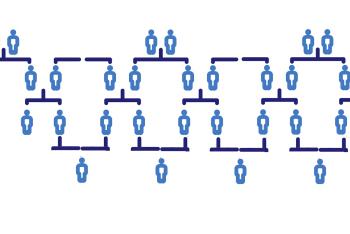For 81-year-old artist Bonnie Flanagan, an overall assessment of her health, which included a self...
Read More

According to the American Cancer Society (ACS), approximately 20,500 people are diagnosed with esophageal cancer annually. This type of cancer is most commonly diagnosed in men 65 and older, with steady diagnosis rates in recent years.
However, a new study shows that esophageal cancer diagnosis among people aged 45 to 64 has almost doubled from 2012 to 2019. Understanding the symptoms of esophageal cancer can help you seek treatment at the earliest warning signs.
Esophageal cancer is the result of abnormal cell growth in the esophageal tissue. “The esophagus, a muscular tube that runs from the throat to the stomach, helps move food into your stomach for digestion,” said Charles, Shieh, M.D., thoracic surgeon and oncologist at Inspira. “During this process, the esophageal sphincter acts as a valve opening to allow food and liquid to pass into the stomach.”
There are two primary types of esophageal cancer:
Esophageal cancer is relatively rare, with fewer than 200,000 cases in the United States yearly. The cause behind the uptick of cases in middle-aged people is unknown, but risk factors include alcohol and tobacco use, obesity and gastrointestinal reflux disease.
Barrett’s esophagus, a precancerous condition characterized by abnormal changes to the lower part of the esophagus, is the result of chronic, untreated acid reflux. This condition, a common precursor to esophageal cancer, saw a 50 percent increase in diagnosis rates from 2012 to 2019 in adults 45 to 64.
“When esophageal cancer is in its early stages, there aren’t any blatant symptoms,” said Dr. Shieh. “However, as the tumor enlarges, it narrows the opening of the esophagus, making it difficult and painful to swallow.” Other symptoms may include:
“Treatment for esophageal cancer depends on many factors, including the location and depth of the tumor, whether it has spread to other parts of the body and the patient’s general health,” said Dr. Shieh. “Surgery is the most common treatment for esophageal cancer, and other options include chemotherapy, radiation, laser therapy and photodynamic therapy.”
Esophageal cancer is not preventable. However, controlling risk factors, including tobacco and alcohol use and unhealthy diets, helps lower your chances of developing this disease. It’s important to discuss all treatment options with your medical team so that together you can make a decision that fits your needs.
The prognosis for people diagnosed with esophageal cancer depends on the person’s general health and how far the disease has progressed. Fortunately, effective treatment for esophageal cancer is possible if caught early enough.
Inspira Health is a high reliability organization (HRO), which means safety is the top priority for patients and staff. To make an appointment, call 1-800-INSPIRA.

For 81-year-old artist Bonnie Flanagan, an overall assessment of her health, which included a self...
Read More
Uncover the hidden connections between your family's past and your future well-being as we delve...
Read More
Treating cancer requires an arsenal of tools and preventive measures. Explore the power of...
Read More
The material set forth in this site in no way seeks to diagnose or treat illness or to serve as a substitute for professional medical care. Please speak with your health care provider if you have a health concern or if you are considering adopting any exercise program or dietary guidelines. For permission to reprint any portion of this website or to be removed from a notification list, please contact us at (856) 537-6772